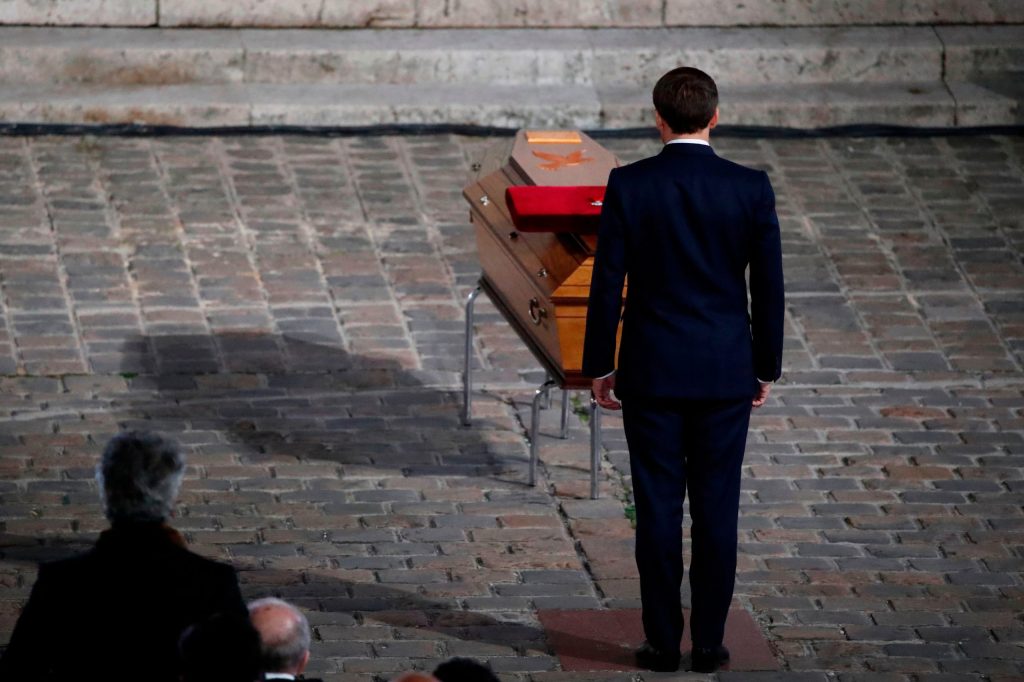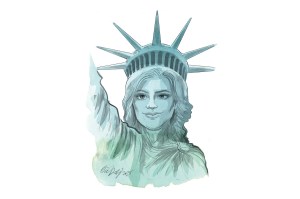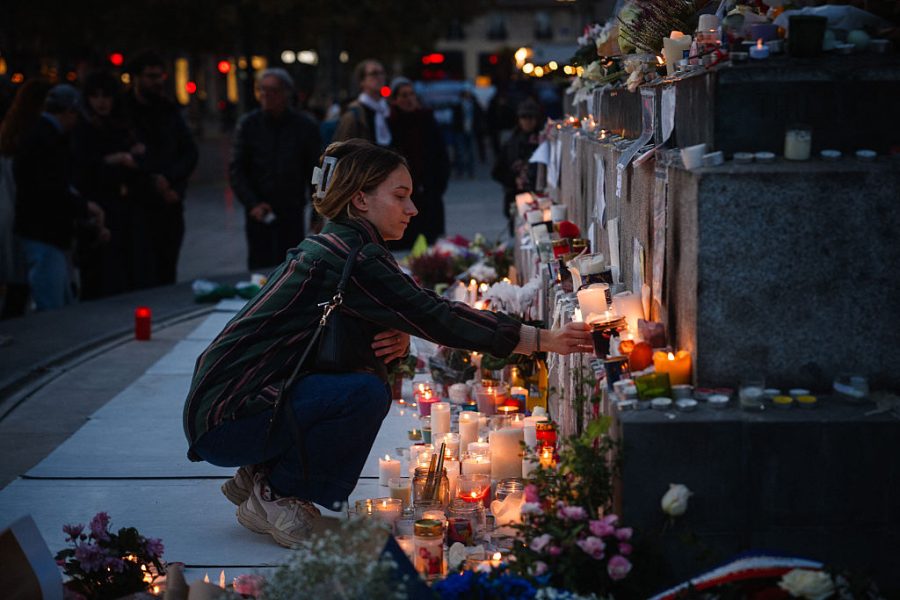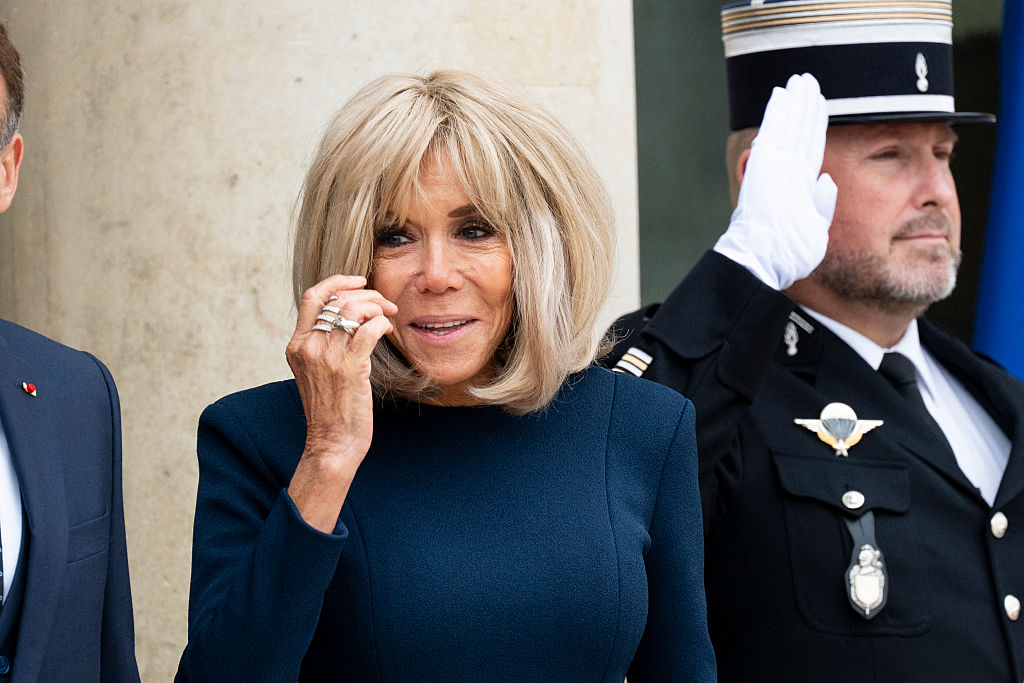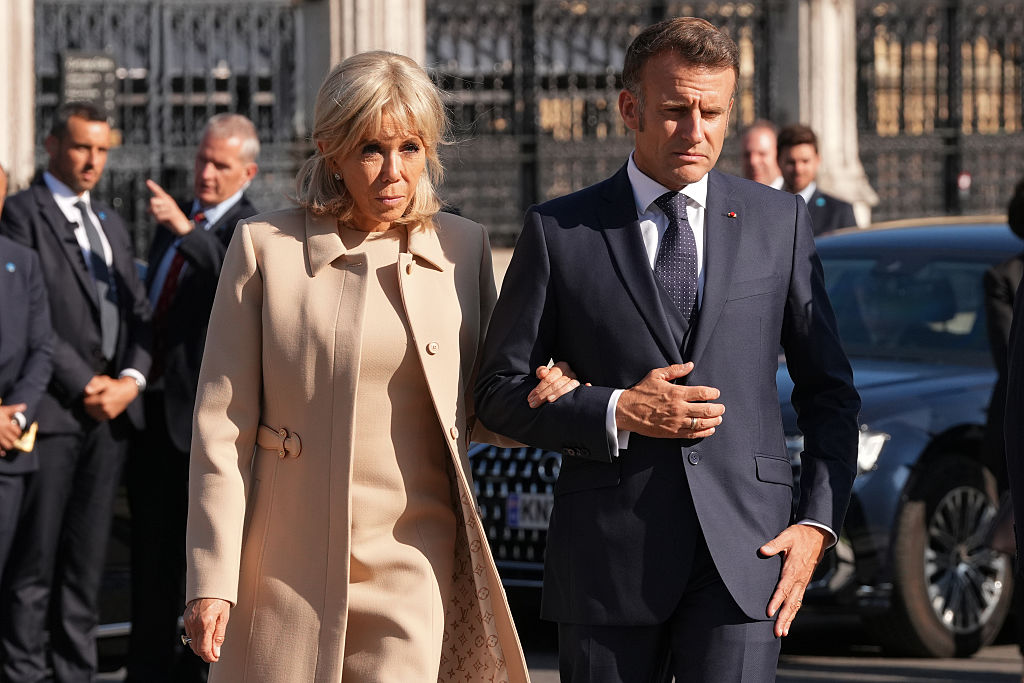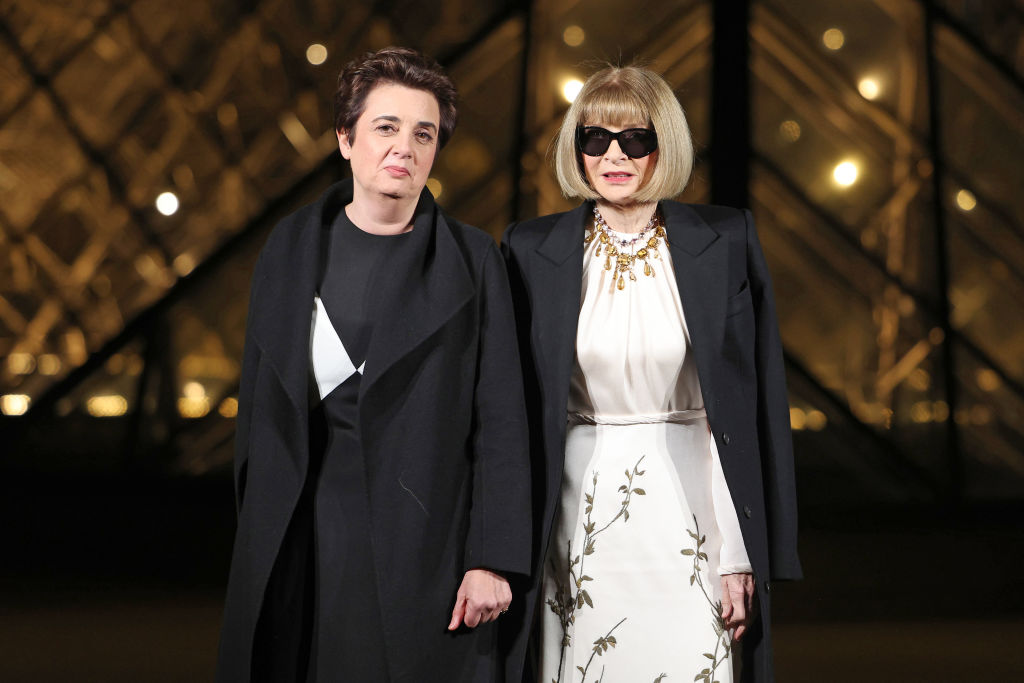Sometimes a story does not receive the attention you think it should. Sometimes the news is too familiar or too far away to warrant a real response. There is, in any case, so much else going on and the bandwidth of our attention is limited. And so the decapitation of the teacher Samuel Paty in a small town to the north of Paris has not commanded quite the attention in this country that you might have expected.
Paty, you will recall, was targeted by a Chechen-born terrorist who had developed a murderous obsession with the teacher. His ‘crime’ had been to show his pupils a depiction of the Prophet Mohammed during a lesson exploring the concepts of liberty and freedom of expression. This had provoked complaints from some Muslim parents and sparked a campaign, online and off, to have Paty sacked.
Perhaps a weary familiarity has deadened our reactions to these atrocities. Perhaps, too, the evident madness of Paty’s death is enough to render it, in some sense, so exceptional that it can be discounted or otherwise ignored.
And perhaps it also reflects the truth that a single terrorist is a less frightful, less intimidating, less repulsive figure than a gang intent on murder. Arising from nowhere, he is unpredictable and thus in some sense off the books; an assassin who cannot be anticipated. As such, it becomes easy, perhaps too easy, to shovel him into a folder marked ‘one of those things’; an example of the randomness of the universe. Fate is a capricious thing.
And so we become hardened against horror. If we are not wholly inured to it, we know it must still be kept in perspective. For most of us, most of the time, life carries on. As of course, it must. Yet this is not quite good enough either. It requires us to blink and shift our eyes from the reality of the world as it is.
Samuel Paty has been martyred and it is widely, perhaps even tritely, suggested he is a martyr for free speech. There is much truth in that but not enough for it to be the entirety of the matter. Paty’s death is not just a question of liberalism or secularism; it is a question of who is permitted to set the rules for liberal discourse in the first place. It is a challenge, an interrogation, and this is the core question: is France permitted to be France?
The answer, at least according to Recep Tayyip Erdogan and Imran Khan, appears to be ‘no’. The leaders of Turkey and Pakistan appear determined to exploit both Monsieur Paty’s murder and Macron’s reaction to it for their own domestic ends. Erdogan suggests Macron — and anyone who sympathizes with him — is ‘in a real sense [a] fascist’ (never let it be denied that authoritarian thugs can have a sense of humour). Khan, meanwhile, argues Macron ‘has chosen to deliberately provoke Muslims, including his own citizens’, an argument that implicitly denies agency to the very people Imran purports to be concerned about.
It seems Imran Khan’s view is that radicalization is always the fault of those who respond to it, not the responsibility of those who are the radicals themselves. He asks that Macron deny space to extremists while, cynically, condemning any and every measure seeking to do just that. The ‘boycott France’ movement is just as mendacious and, quite probably, likely to prove an incitement to further violence. Should that prove the case, the victims will once again be blamed. This is the eternal truth of these matters and has been ever since the Rushdie affair.
This is the Fifth French Republic but while the constitution may change, the idea of France has an eternal quality. Keeping faith with that idea is the first duty of any and every French president. If he had nothing else to offer, Emmanuel Macron would fulfill his responsibilities merely by nurturing that notion of France.
We like to think conflicts may be resolved in a consensual manner. A little bit of give here matched by a certain amount of take there and all will be well. Accommodations are there to be reached. But this tussle is an unusual one for there is no compromise available that will satisfy both parties. Either you believe in the tenets of western liberal democracy or you do not. If you do believe in them, you must defend them too for, if we know nothing else, we know that liberalism’s opponents are convinced of their own righteousness.
That in turn requires certain distinctions to be made. The enemy is not ‘Islam’ for the vast majority of Muslims practice forms of their faith wholly compatible with life in France. But it is a mistake to utter platitudes about Islam as a ‘religion of peace’ when, for some of its adherents, it is in fact a religion of the sword. They are convinced of the justness of their cause; the Islamist terrorist does not see his faith as a perversion of Islam’s true meaning but, rather, as its most faithful consummation. (In like fashion he takes a dim view of the overwhelming majority of Muslims who do not share his convictions.)
France must be France, a country in which the virtues of the Republic are elevated above the privileges afforded to private institutions or religious denominations. You may as easily be a French Muslim as you may be a French Catholic but the ‘French’ bit is the most important part.
Far from excluding French Muslims, Macron in fact demands their institutions be made more properly French. Earlier this month, in a long-awaited speech, he acknowledged that France has too often neglected its responsibilities to its minorities. This has led to a ‘ghettoization of our Republic’. Even so, ‘secularism is the cement of a united France’ and this being the case ‘what we must attack is Islamist separatism’. Not Islam, but Islamism; not Muslims, but separatists.
As part of a package of measures, Macron plans to all but eradicate home-schooling as well as ending the ‘importation’ of foreign imams while directly funding mosques and other Muslim institutions that recognize the virtues of the secular, democratic, republic. If successful, such moves would in some sense nationalize French Islam, placing it on a broadly comparable footing with French Catholicism (the French state owns all churches built before 1905). That is an ambitious goal, but surely a worthy one. In that context, arguments over halal menus or sex-segregated public spaces are symptoms of a deeper problem rather than their cause.
That difficulty is reflected in the division between private and public identities; the former is personal, the latter communal. Macron, while recognizing France’s failures, insists that certain realities are non-negotiable. There can be no no-go areas and any ‘community’ is merely a subset of France itself.
[special_offer]
Far from being illiberal, let alone Islamophobic, it seems to me that such an approach is defiantly, proudly, liberal. You may, indeed must, lead your life as you see fit, but your liberty to do so is dependent upon not infringing the liberties of others. Unlike some political leaders, Macron at least recognizes the challenge for what it is. Liberalism is not a weak or soppy creed; it is an exacting one for it requires both an acknowledgement of the state’s shortcomings in practice at the same time it demands citizens live up to the theoretical basis upon which the state is founded.
Rejecting that premise must have consequences. Macron’s approach is not easy and that is part of its point. It disavows the notion that there is an inherent incompatibility between Frenchness and Islam — an incompatibility insisted upon by the far-right and radical Islamists alike — while also rubbishing the notion Frenchness is the problem itself (as insisted upon by parts of the far-left). Centrism? Perhaps, but of a muscular kind.
Samuel Paty taught his pupils to respect, even honor, the idea of France. His spirit is one worth remembering, worth preserving, for to forget him is to concede the virtues of liberalism. Holding that line is not always easy but the cost of abandoning it would be vastly greater. Hence we in this country have an interest in France remaining France; Samuel Paty was murdered there but it could easily have happened here. If that offers one perspective, it is also a reminder that liberalism must always be defended against its enemies. Vive la république; vive la France.
This article was originally published onThe Spectator’s UK website.



